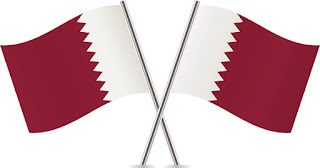Report on the Impact of the Gulf Crisis on Human Rights in Qatar
Blockade Called "Arbitrary":
No Evidence of Any "Legal Decisions" Motivating Measures Taken by Saudi Arabia, UAE, Bahrain, and Egypt
In December, 2017, the UN Office of the High Commissioner for Human Rights, Technical Mission to the State of Qatar, issued a very important report that got no coverage by Western press. You can find the report here.
I am quoting the Findings and Observation at the end of the report in full. I have added the emphasis.
IV. Findings and observations
59. All Interlocutors met by the team mostly referred to the decision of 5 June as a “blockade”, and some evoked an “embargo”, a “boycott” or “unilateral sanctions” against the State of Qatar and its inhabitants (nationals and residents). Most emphasized the unprecedented divide and distrust this situation has generated, not least given the tight family bonds across the Gulf region. They also expressed concern about the uncertain and far-reaching consequences, with fears that this crisis may become protracted and/or deteriorate.
60. The team found that the unilateral measures, consisting of severe restrictions of movement, termination and disruption of trade, financial and investment flows, as well as suspension of social and cultural exchanges imposed on the State of Qatar, had immediately translated into actions applying to nationals and residents of Qatar, including citizens of KSA, UAE and Bahrain. Many of these measures have a potentially durable effect on the enjoyment of the human rights and fundamental freedoms of those affected. As there is no evidence of any legal decisions motivating these various measures, and due to the lack of any legal recourse for most individuals concerned, these measures can be considered as arbitrary. These actions were exacerbated by various and widespread forms of media defamation and campaigns hated against Qatar, its leadership and people.
61. The majority of the measures were broad and non-targeted, making no distinction between the Government of Qatar and its population. In that sense, they constitute core elements of the definition of unilateral coercive measures as proposed by the Human Rights Council Advisory Committee: “the use of economic, trade or other measures taken by a State, group of States or international organizations acting autonomously to compel a change of policy of another State or to pressure individuals, groups or entities in targeted States to 15 influence a course of action without the authorization of the Security Council”. Moreover, measures targeting individuals on the basis of their Qatari nationality or their links with Qatar can be qualified as non-disproportionate and discriminatory.
62. The considerable economic impact of the crisis takes over the dimension of an economic warfare, with significant financial losses for the State, companies and individuals, and the confidence of investors being eroded. To date, the wealth of Qatar and its human potential have allowed the country to promptly absorb the shock and protect the population from potentially disastrous economic and social consequences. However, the shock of the decision and the immediate and serious effect of unilateral coercive measures on many individuals have had a major psychological impact on the overall population. This has been exacerbated by a hostile media campaign that flared up from early June and is ongoing. All interlocutors met by the team evoked the lack of trust or even fear this situation has generated, and concerns about the social fabric of very closely-knit societies eroding.
63. In some cases, Qatari institutions, notably the NHRC, have proactively sought prompt solutions, especially for individuals whose studies were interrupted. The NHRC immediately, and for several weeks following 5 June, received a considerably number of complaints. They undertook a series of communications with regional and international mechanisms and have endeavoured to engage with the national human rights institutions of KSA, UAE, Bahrain (to no avail to date) and Egypt (the latter has reportedly cooperated). The team received a detailed report prepared by the National Compensation Claims Commission on the impact of the crisis on individuals (including on human rights impact), and was informed that the National Compensation Claims Commission had hired a private American law firm company to look at options for potential legal actions against the States of KSA, UAE and Bahrain. The commission indicated that the legal file was in the hands of the Government for its consideration.
64. The majority of cases remain unresolved and are likely to durably affect the victims, particularly those having experienced family separation, loss of employment or who have been barred from access to their assets.
65. The crisis has been characterized by the absence of dialogue among the States concerned, with the mediation efforts initiated by Kuwait having stalled. The team noted strong resentment about the lack of action by regional organizations and about the role of the GCC, which many considered as de facto defunct. Given the origins and ramifications of the crisis in KSA, UAE and Bahrain, it would be critical to pursue opportunities to engage with the Governments of these countries to obtain a more comprehensive understanding of the situation, notably of the actions they have taken and the impact on their own citizens and residents.




Comments
Post a Comment